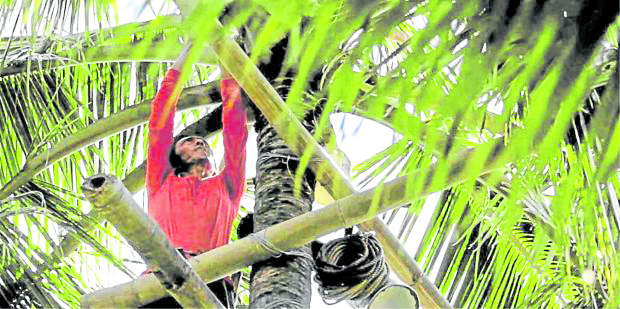
The IRR, a group says, should reflect the Supreme Court’s ruling that the fund is “owned by the government in trust for the coconut farmers.” —INQUIRER FILE PHOTO
Farmer groups on Thursday lambasted the Department of Finance (DOF) for not involving coconut farmers in the management of the coco levy assets as provided in the draft implementing rules and regulations (IRR) of the Coconut Farmers and Industry Trust Fund Act.
A major issue about the draft IRR was the absence of farmer representatives in the Trust Fund Management Committee—composed of the DOF, Department of Budget and Management (DBM), and the Department of Justice—which would have the power to privatize or dispose of any of the coco levy assets.
Also, only the DOF, as the trust fund manager, can recommend an investment strategy to grow the assets.
The fund was estimated to have ballooned to P100 billion to P150 billion in cash and assets. Farmer groups have petitioned for stronger participation in the utilization of the fund but had so far only secured three of the nine seats on the Philippine Coconut Authority (PCA) board.
The other six members were from various government agencies.
“Provisions on the privatization of coco levy assets should be subject to democratic consultation with farmers. We strongly recommend the participation of farmers in handling and managing the trust fund,” said Omi Royandoyan, convenor of Centro Saka.
“The IRR should reflect the Supreme Court’s ruling that the fund is ‘owned by the government in trust for the coconut farmers.’ The IRR should correct the imbalance,” he added.
Joey Faustino, leader of the Coconut Industry Reform Movement, also flagged the gray areas in the draft IRR.
“It was not clear when the trust fund will start earning interest and nothing is noted about what will happen to the assets while they have not been disposed of yet,” he said.
The Coco Levy Trust Fund Act, passed in February, has been swarmed with various issues—from the use of English in the forms for the farmers’ registration to the lack of consultation with farmers groups.
The groups also assailed the lack of a feedback system, noting that most coconut farmers were clueless on how they could benefit from the law.